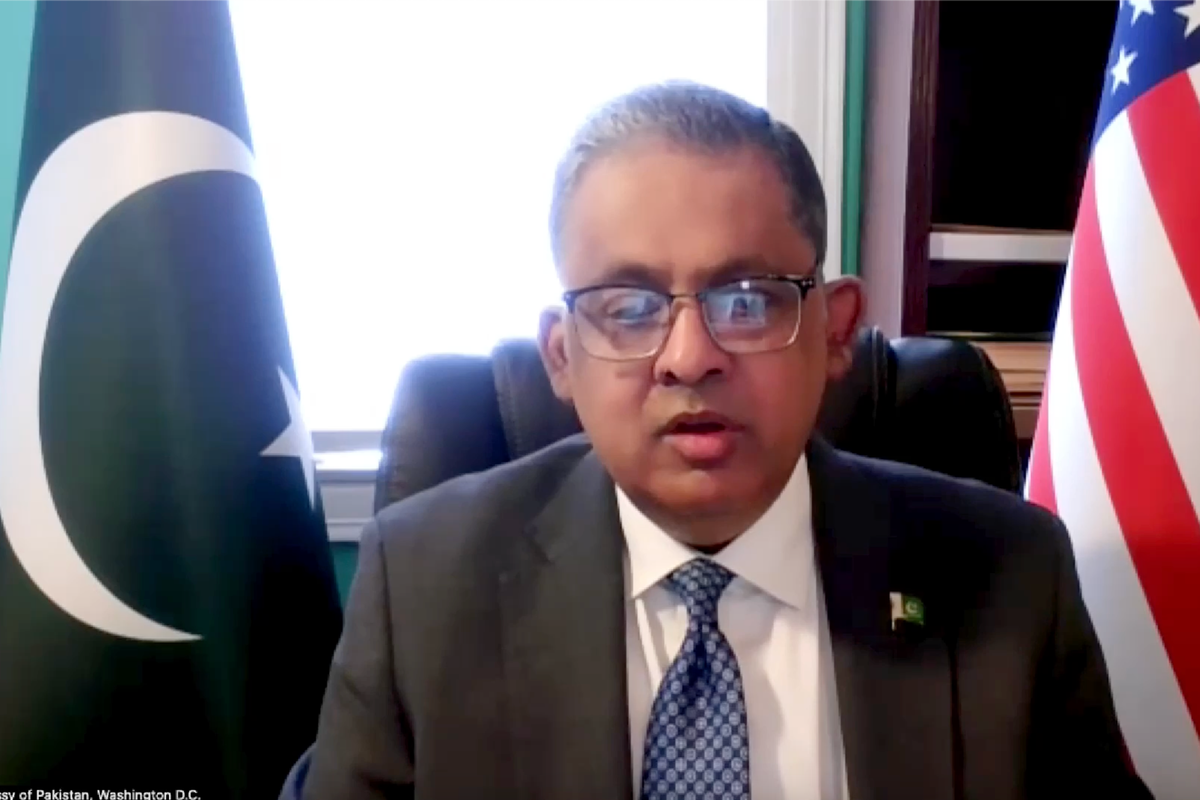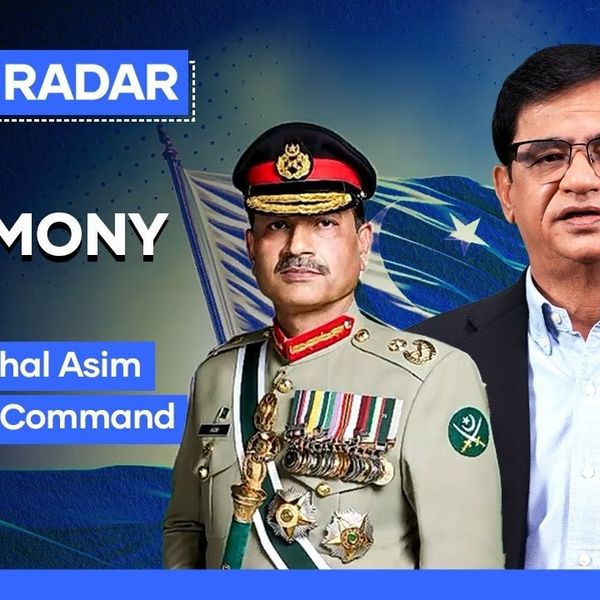News Desk
The News Desk provides timely and factual coverage of national and international events, with an emphasis on accuracy and clarity.

Indian paramilitary soldiers patrol the commercial hub of Srinagar, Kashmir.
File/AFP
Pakistan’s ambassador to the United States has urged the world to "move beyond temporary fixes" and "address the broader problem" of the disputed region of Kashmir as tensions with neighboring India flared up again following the April 22 Pahalgam attack.
In an interview with Fox News Digital, Ambassador Rizwan Saeed Sheikh stated, “Previously, when tensions escalated, the international community stepped in — but often looked away before the situation fully diffused,” he said. “This time, perhaps it would be timely to move beyond temporary fixes and address the broader problem.”
He warned of potentially catastrophic consequences if India launches a military strike in response to the Pahalgam attack, urging Washington to help de-escalate tensions between the nuclear-armed neighbors.
Sheikh appealed directly to U.S. President Donald Trump to intervene diplomatically, citing the president’s self-professed dealmaking abilities and the opportunity to make lasting peace part of his legacy.
“This is one nuclear flashpoint,” Sheikh said. “It could be an important part of President Trump’s legacy to attend to this situation — not with a Band-Aid solution, but by addressing the core issue: the Kashmir dispute.”
The clamor follows a violent attack in Kashmir’s Pahalgam area on April 22, where 24 tourists were killed by unidentified gunmen. While investigations remain inconclusive, India swiftly blamed Pakistan for the assault, a charge Islamabad has firmly denied, citing a lack of evidence and calling for an impartial inquiry.
Sheikh called New Delhi’s reaction “dangerously premature”, noting that Indian authorities publicly blamed Pakistan within minutes of the incident and allegedly filed an initial investigation report just 10 minutes later, despite the area’s remote and rugged terrain.
Islamabad said it has received “credible intelligence” suggesting an Indian military strike on Pakistani territory may be imminent. The Indian Embassy in Washington did not respond to requests for comment.
Sheikh accused India’s government and media of inciting public hysteria and inflaming nationalist sentiment.
“The region, home to over 1.5 billion people, is being held hostage to war hysteria,” he said.
He added that India and Pakistan have already exchanged gunfire across the Line of Control — the de facto border in Kashmir — since the attack.
“We cannot afford any instability in the neighborhood,” he said. “We want a peaceful neighborhood. But as we’ve said at all levels — including the leadership level — our desire for peace should not be misconstrued as weakness. We want peace with dignity.”
Kashmir policies, water disputes add fuel to tensions
Pakistan has offered to cooperate in a neutral and transparent investigation and requested evidence from India, both of which Sheikh said have been ignored.
“Any misadventure or miscalculation can lead to a nuclear interface,” he warned. “That is certainly not desirable in such a densely populated region.”
Sheikh claimed the suspected attackers are Indian nationals whose homes have already been raided by Indian authorities, questioning why New Delhi is “looking outside its borders” instead of addressing what he described as “administrative inadequacies” in Jammu and Kashmir — a region he repeatedly referred to as “illegally occupied”.
The ambassador also criticized India’s broader policies in the region, including alleged demographic changes via the settlement of non-residents and what he called threats to unilaterally block water flows from Pakistan’s rivers — a potential violation of the Indus Waters Treaty.
“That is as grossly illegal as it can get,” Sheikh said, emphasizing that the treaty has endured despite multiple wars between the two countries.
Pakistan has warned that any move to cut off its water supply would be considered an act of war and has raised the issue at The Hague, accusing India of “water terrorism”.
Disputed region
Kashmir, a Muslim-majority Himalayan region, is held by India and Pakistan in parts and claimed by both in full. A small sliver of Kashmir is also held by China.
Since they were partitioned in 1947, the two countries have fought three wars – in 1948, 1965, and 1971 – two of them over Kashmir.
Also, in the Siachen glacier in northern Kashmir, Indian and Pakistani troops have fought intermittently since 1984. A cease-fire came into effect in 2003.
In August 2019, India scrapped the long-standing semi-autonomous status of the disputed valley, a controversial move that prompted Islamabad to downgrade its diplomatic mission and halt trade with New Delhi.
Some Kashmiri groups in Jammu and Kashmir have been fighting for independence. Thousands of people have been killed in the conflict in the region since 1989.










Comments
See what people are discussing